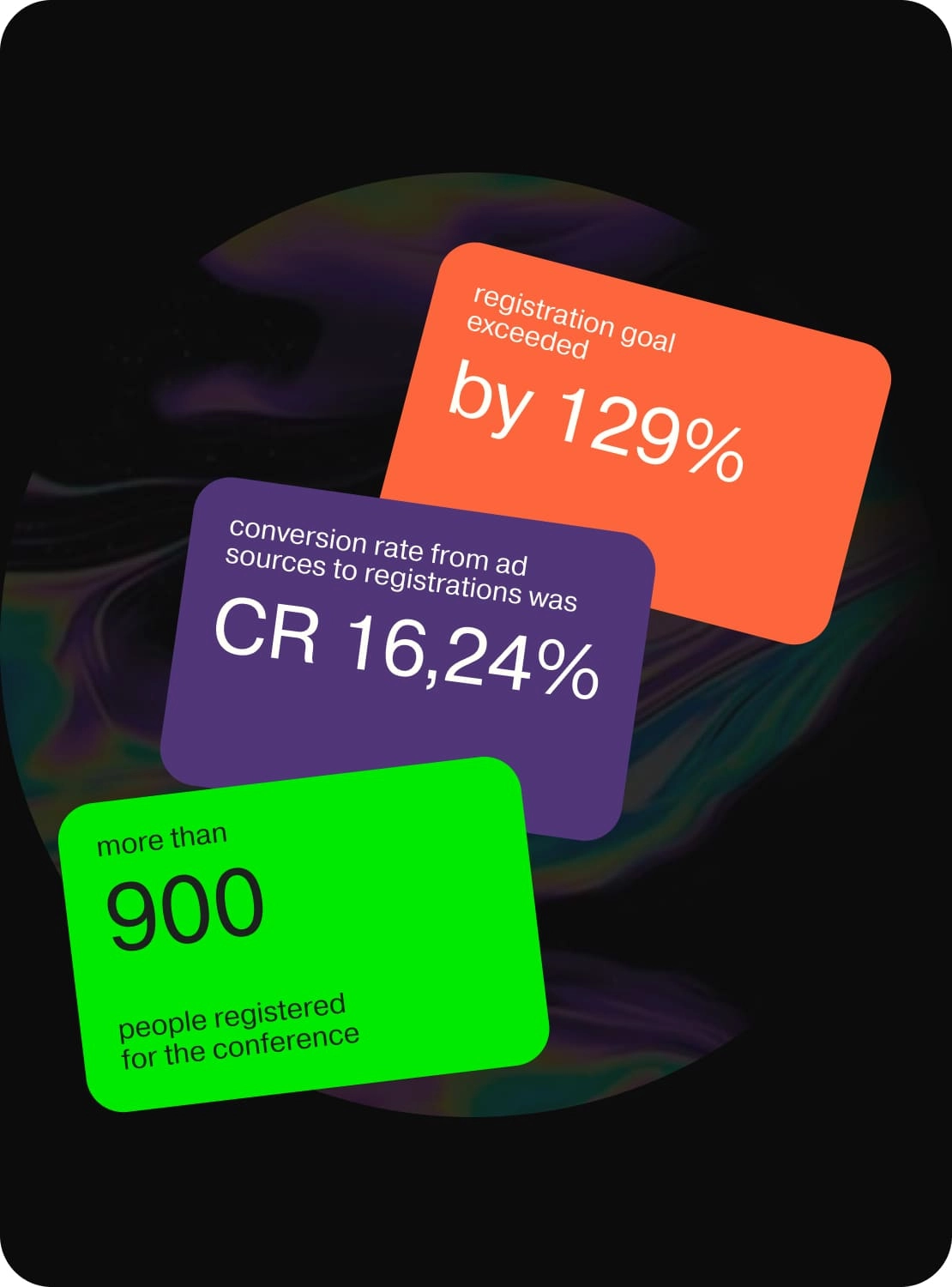

Metaculture was an international two-day online conference focused on global modern trends. Experts from various fields (art, culture, technology) examined the trends that were already changing or had the potential to change our lives. The participants not only discussed predictions but also sought to answer the question of what skills people would need in the «future».
The speakers included professionals from different countries: Perry Chen, founder of the Kickstarter platform; Olga Kiseleva, artist and lecturer at Sorbonne University; Maurice Benayoun, professor at the School of Creative Media at City University of Hong Kong; and many others.
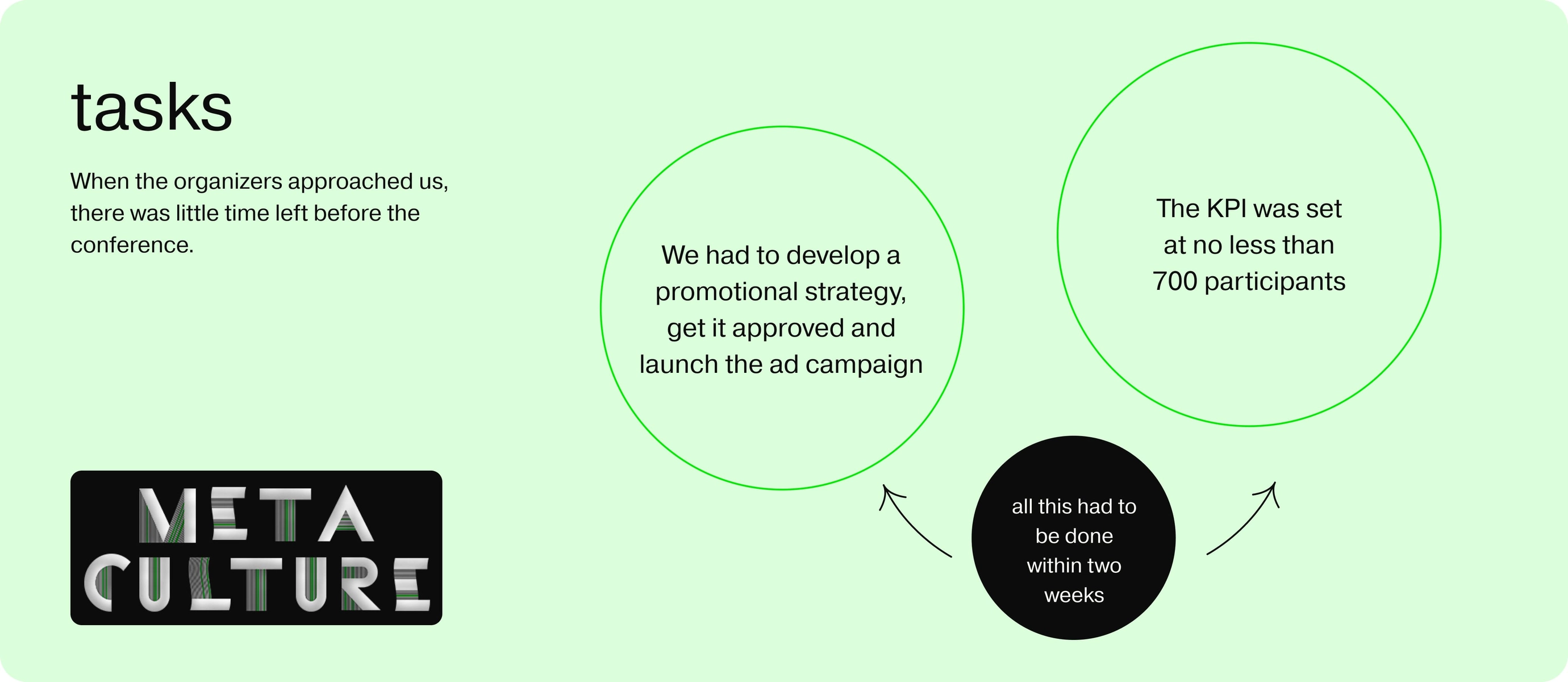
solution
The ad campaign was conducted on social media. We used promo post formats, carousels and stories. The traffic was directed to the website, where there was a form to collect registrations.
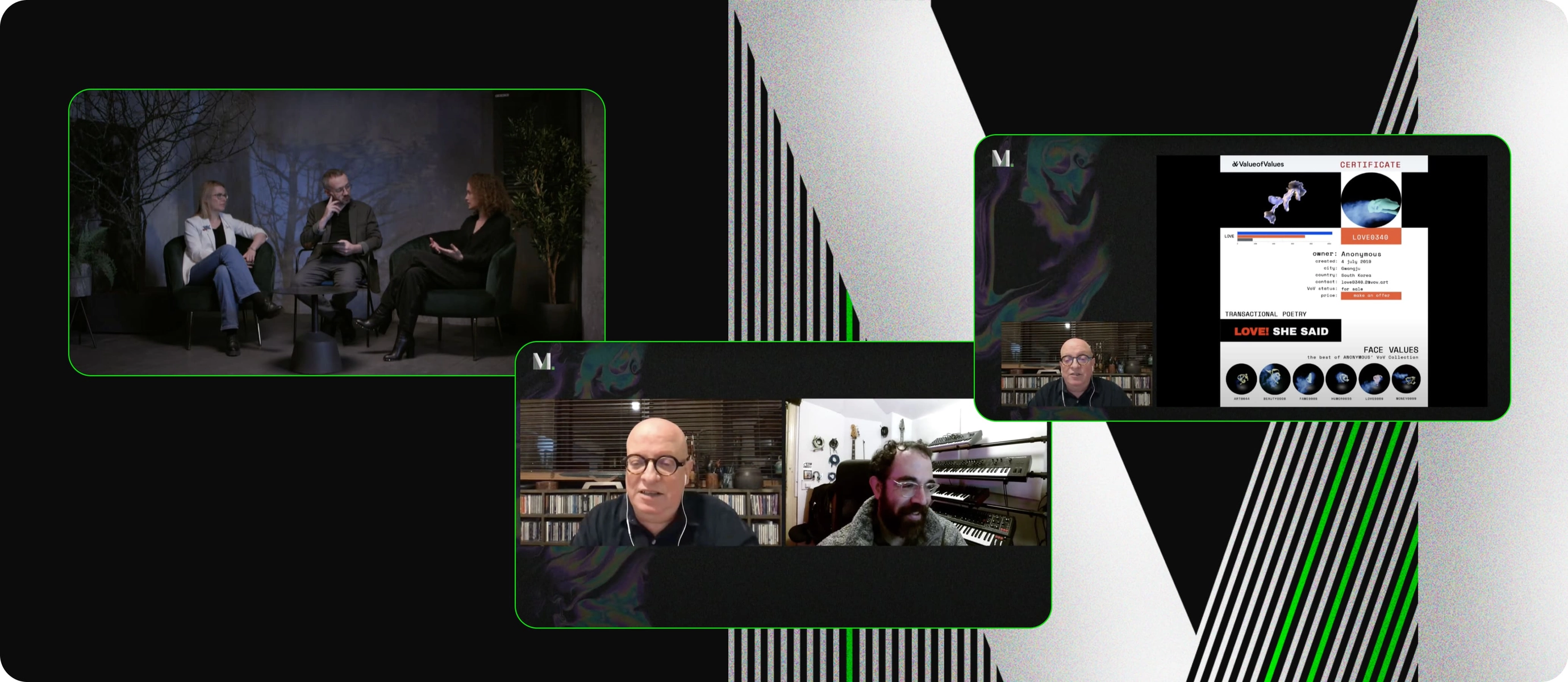
target audience segmentation
Our team analyzed the potential audience for the conference and prepared several targeting options that allowed for more personalized engagement with users:
- Targeting users with long-term interests in culture, art, cultural studies, technology, and urbanism, as well as overlaps of these interests (e.g., users interested in multiple topics from this list)
- Targeting based on relevant job positions, students and graduates with humanities specializations
- Contextual targeting based on search queries related to culture, art, cultural studies, technology and urbanism
- Audiences from similar events, conferences, media outlets and communities dedicated to contemporary culture, technology and innovation
- Retargeting visitors of the website (targeting users who had already visited the project site) and the organizer’s social media
- Lookalike audience targeting
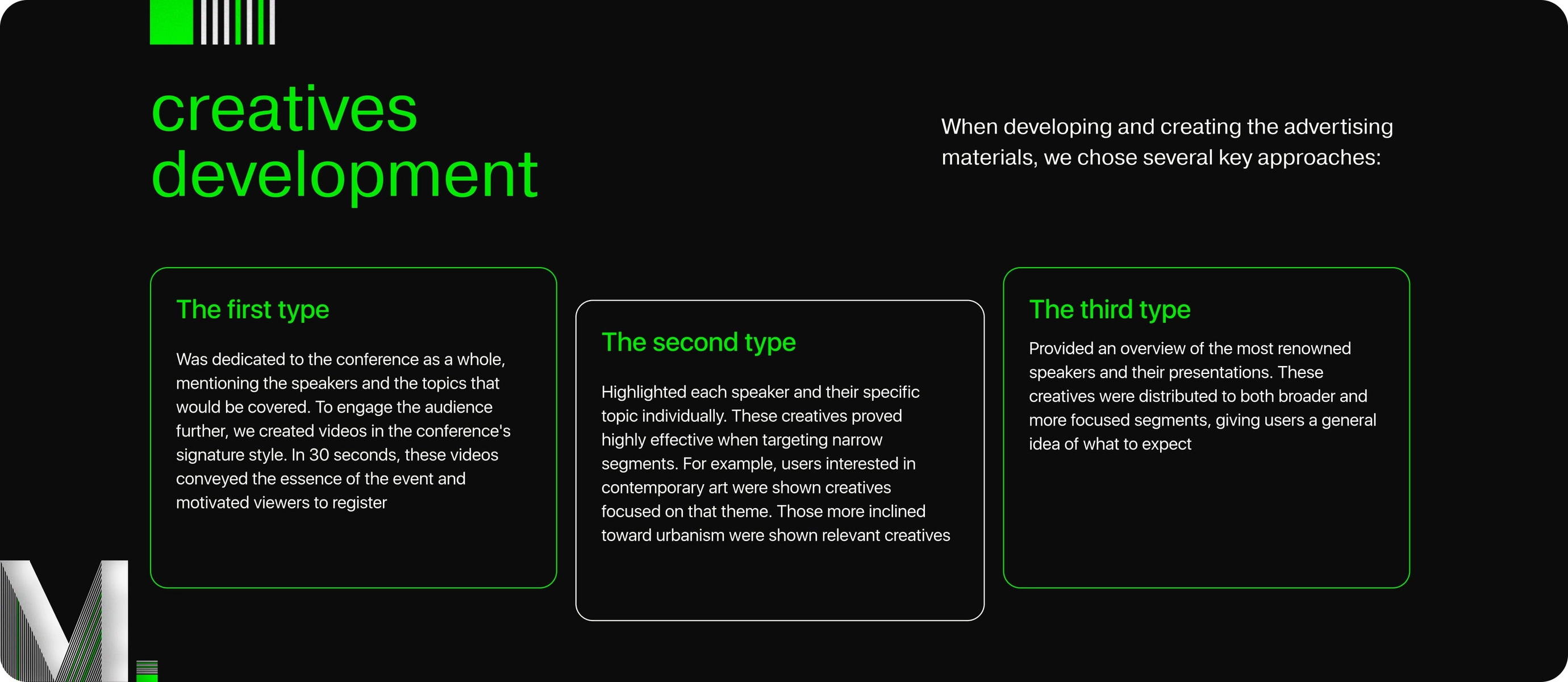
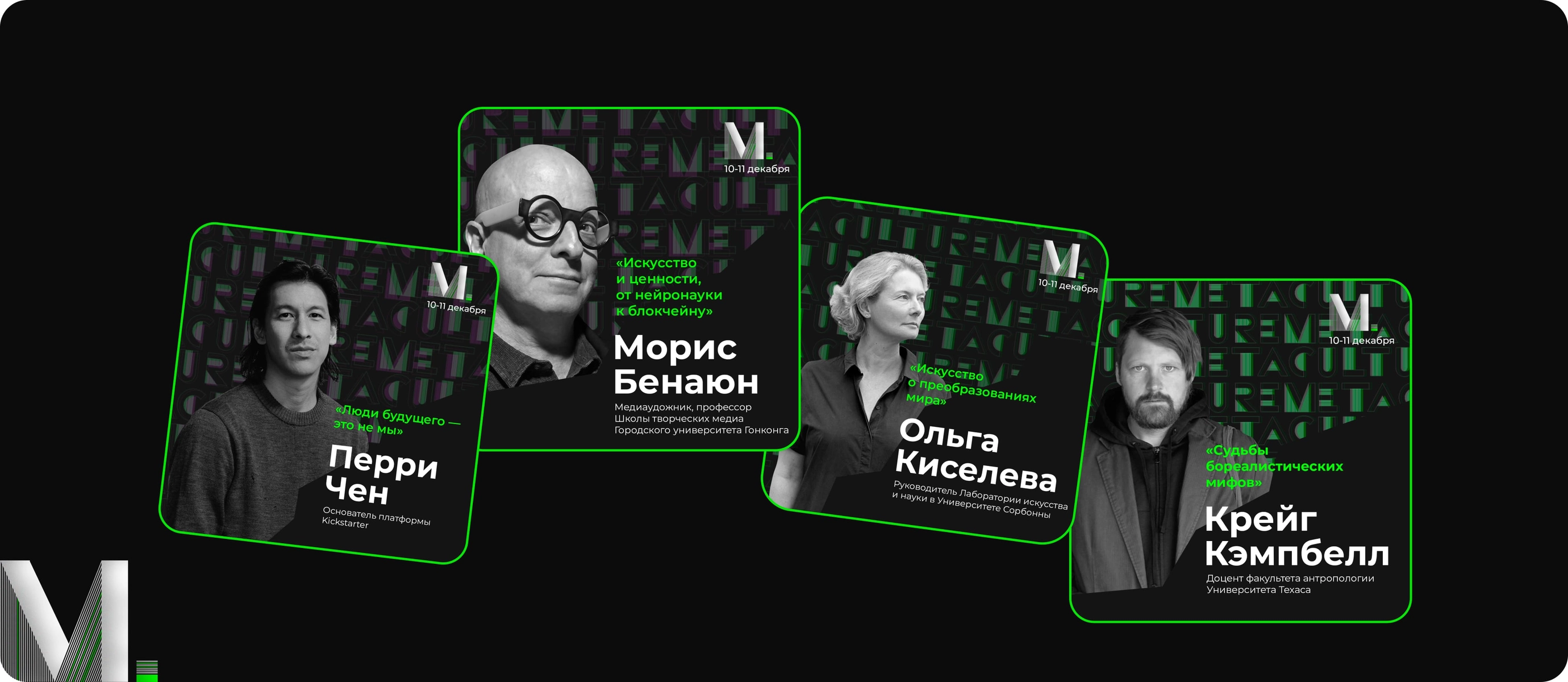
campaign launch and optimization
To increase the efficiency of the ad campaign, we developed a flexible media plan. We estimated the size of our target audience in each social network.
All creatives and audiences were launched within two days! Despite the challenging conditions, we managed to go live on time and in full. Throughout the campaign, we tracked the effectiveness of the platforms, audiences and creatives. The key metric of success was conversions: all optimization efforts were focused on maximizing registrations within the planned budget.
During the campaign, depending on interim results, some ads were deactivated for specific segments, while traffic for others was increased, and new (more targeted) segments were added.
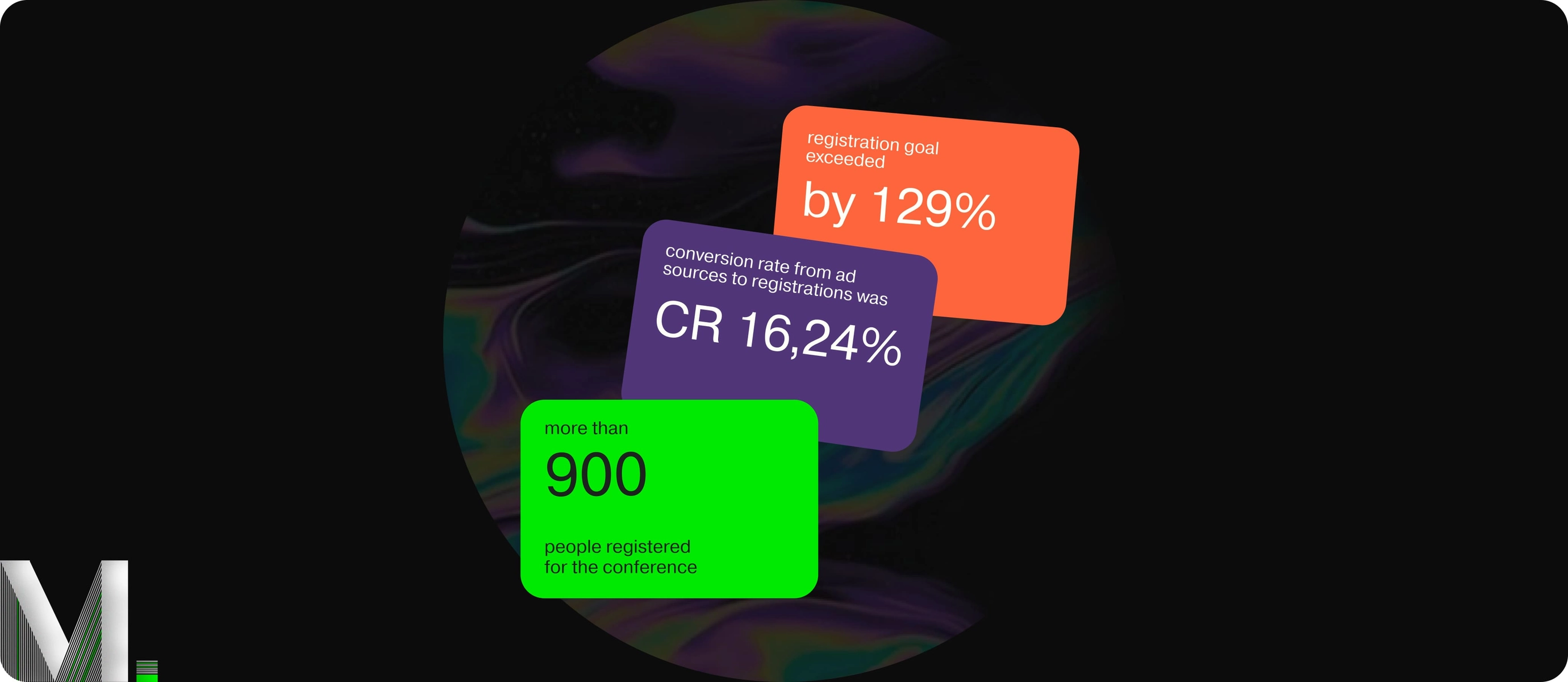
analytics
We connected Yandex.Metrica for analytics. We tracked user actions (conference registrations) and traffic quality metrics (bounce rates, time on site, and depth of page views). Optimization was done daily.
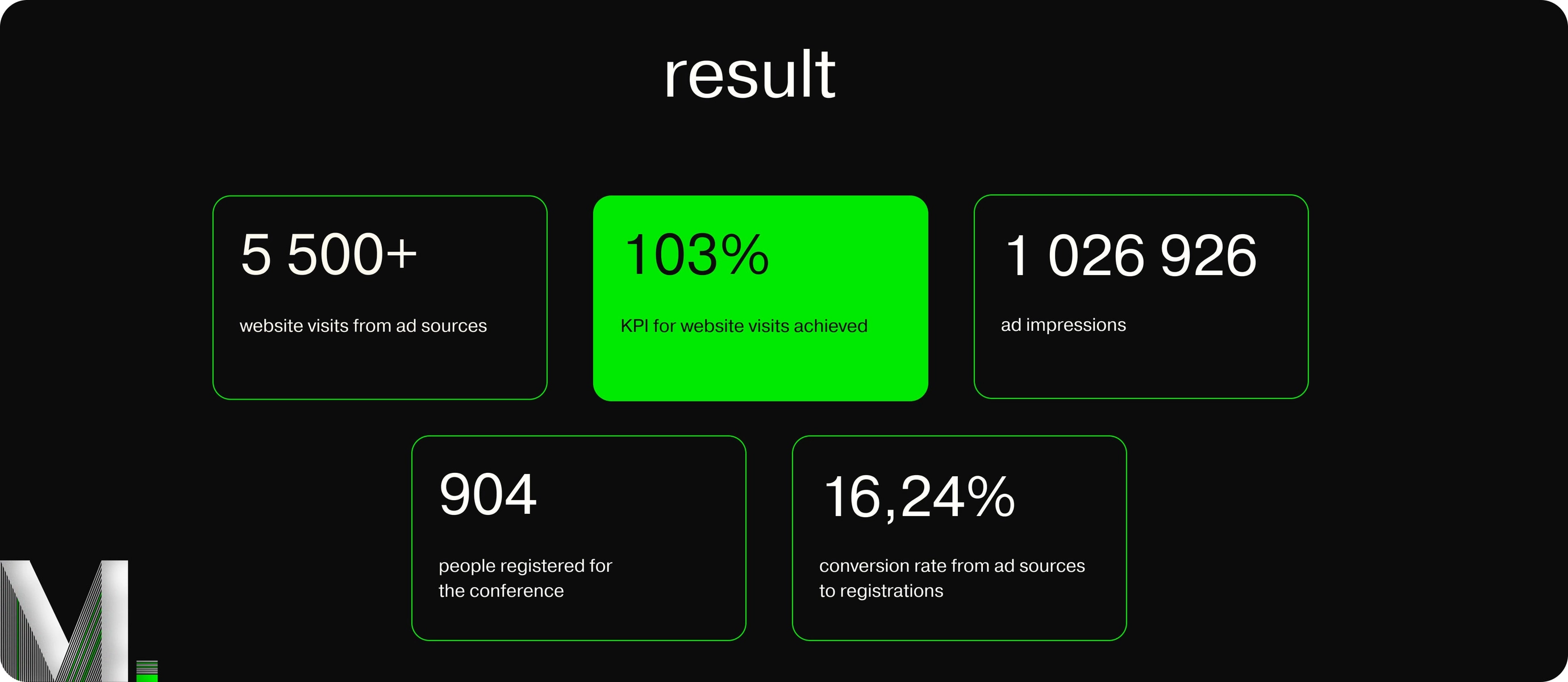
Metaculture was an international two-day online conference focused on global modern trends. Experts from various fields (art, culture, technology) examined the trends that were already changing or had the potential to change our lives. The participants not only discussed predictions but also sought to answer the question of what skills people would need in the «future».
The speakers included professionals from different countries: Perry Chen, founder of the Kickstarter platform; Olga Kiseleva, artist and lecturer at Sorbonne University; Maurice Benayoun, professor at the School of Creative Media at City University of Hong Kong; and many others.
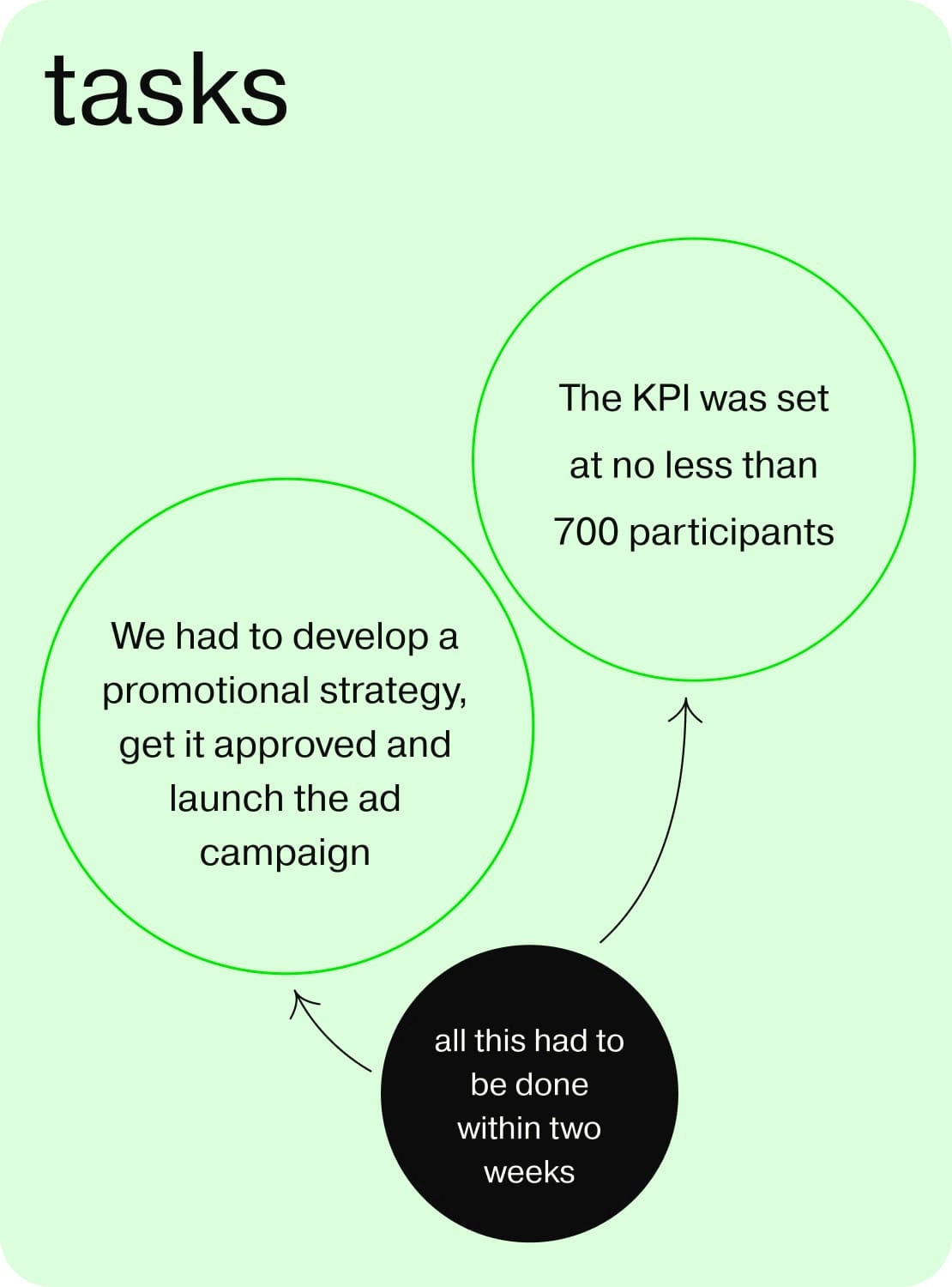
solution
The ad campaign was conducted on social media. We used promo post formats, carousels and stories. The traffic was directed to the website, where there was a form to collect registrations.
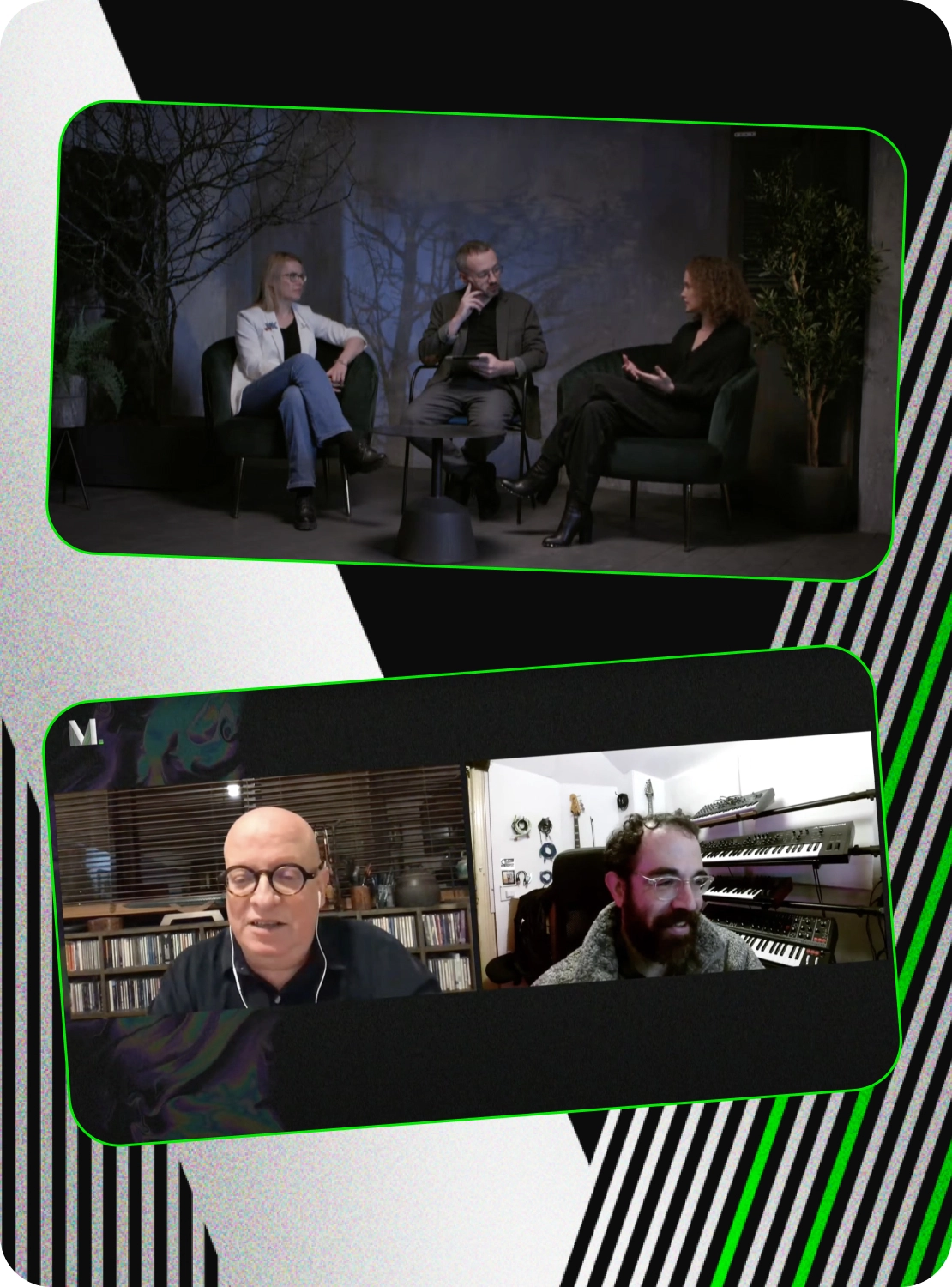
target audience segmentation
Our team analyzed the potential audience for the conference and prepared several targeting options that allowed for more personalized engagement with users:
- Targeting users with long-term interests in culture, art, cultural studies, technology, and urbanism, as well as overlaps of these interests (e.g., users interested in multiple topics from this list)
- Targeting based on relevant job positions, students and graduates with humanities specializations
- Contextual targeting based on search queries related to culture, art, cultural studies, technology and urbanism
- Audiences from similar events, conferences, media outlets and communities dedicated to contemporary culture, technology and innovation
- Retargeting visitors of the website (targeting users who had already visited the project site) and the organizer’s social media
- Lookalike audience targeting
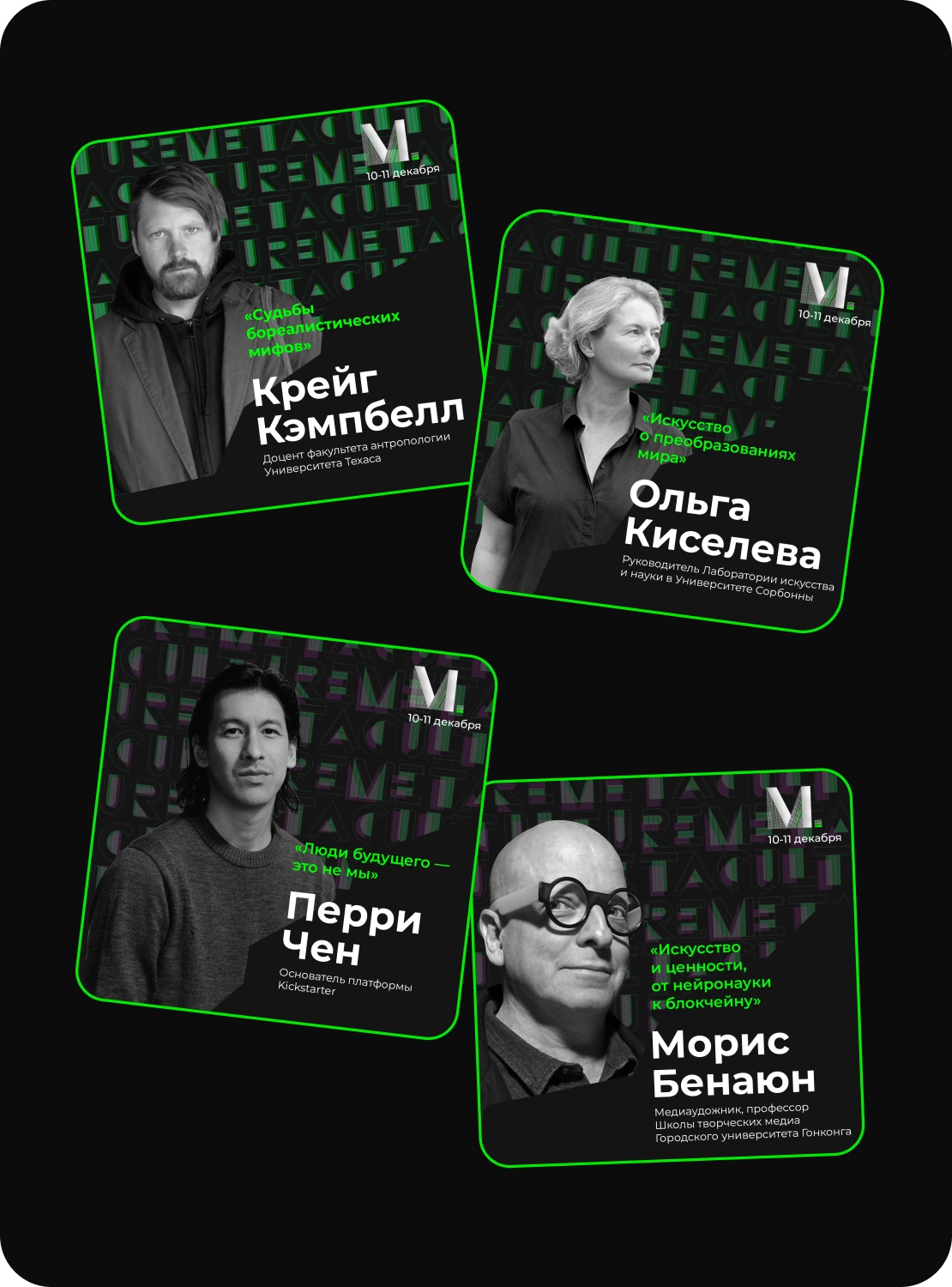
creatives development
When developing and creating the advertising materials, we chose several key approaches:
- The first type of creative was dedicated to the conference as a whole, mentioning the speakers and the topics that would be covered. To engage the audience further, we created videos in the conference's signature style. In 30 seconds, these videos conveyed the essence of the event and motivated viewers to register.
- The second type highlighted each speaker and their specific topic individually. These creatives proved highly effective when targeting narrow segments. For example, users interested in contemporary art were shown creatives focused on that theme. Those more inclined toward urbanism were shown relevant creatives.
- The third type provided an overview of the most renowned speakers and their presentations. These creatives were distributed to both broader and more focused segments, giving users a general idea of what to expect.
campaign launch and optimization
To increase the efficiency of the ad campaign, we developed a flexible media plan. We estimated the size of our target audience in each social network.
All creatives and audiences were launched within two days! Despite the challenging conditions, we managed to go live on time and in full. Throughout the campaign, we tracked the effectiveness of the platforms, audiences and creatives. The key metric of success was conversions: all optimization efforts were focused on maximizing registrations within the planned budget.
During the campaign, depending on interim results, some ads were deactivated for specific segments, while traffic for others was increased, and new (more targeted) segments were added.
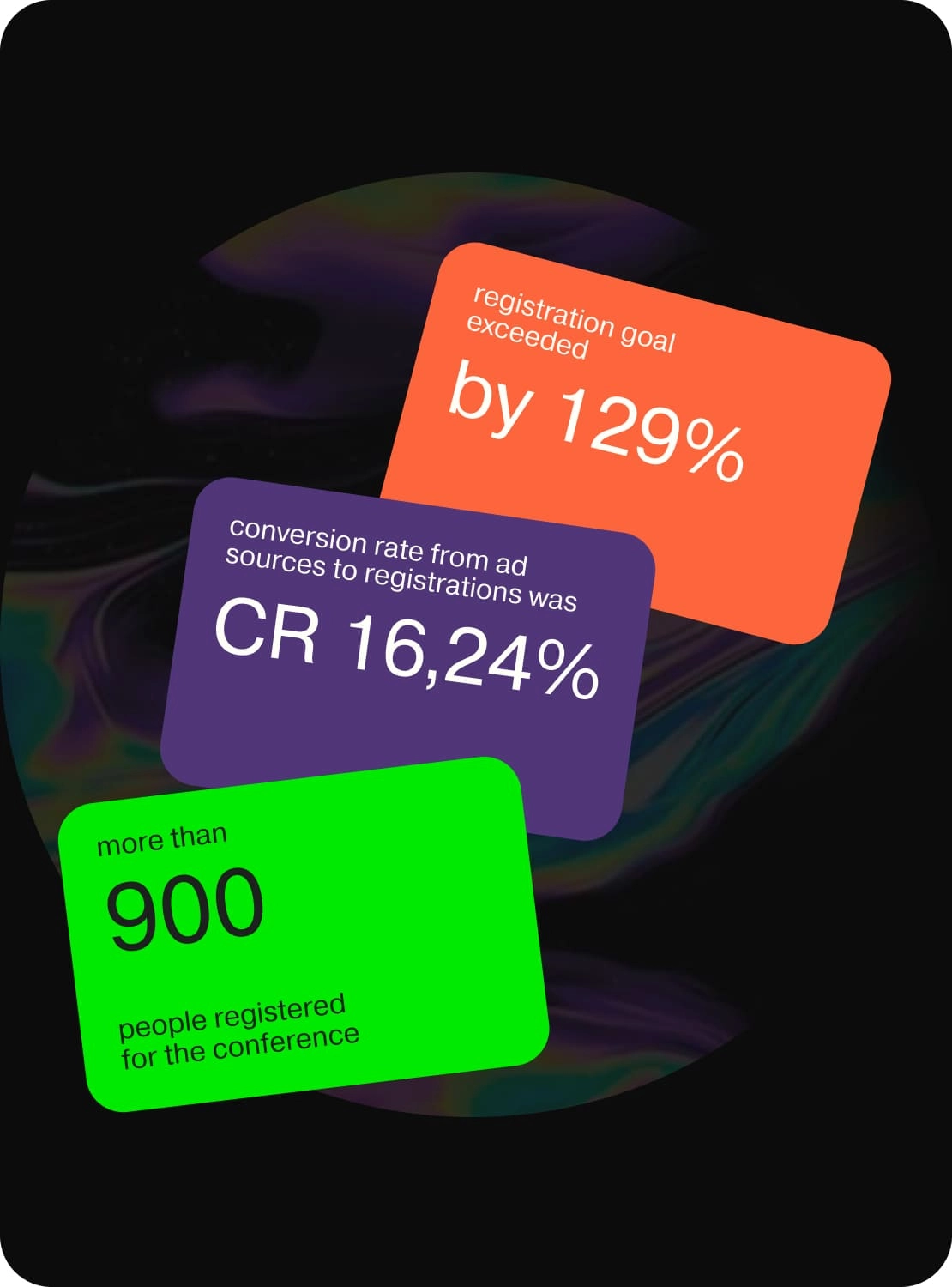
analytics
We connected Yandex.Metrica for analytics. We tracked user actions (conference registrations) and traffic quality metrics (bounce rates, time on site, and depth of page views). Optimization was done daily.
